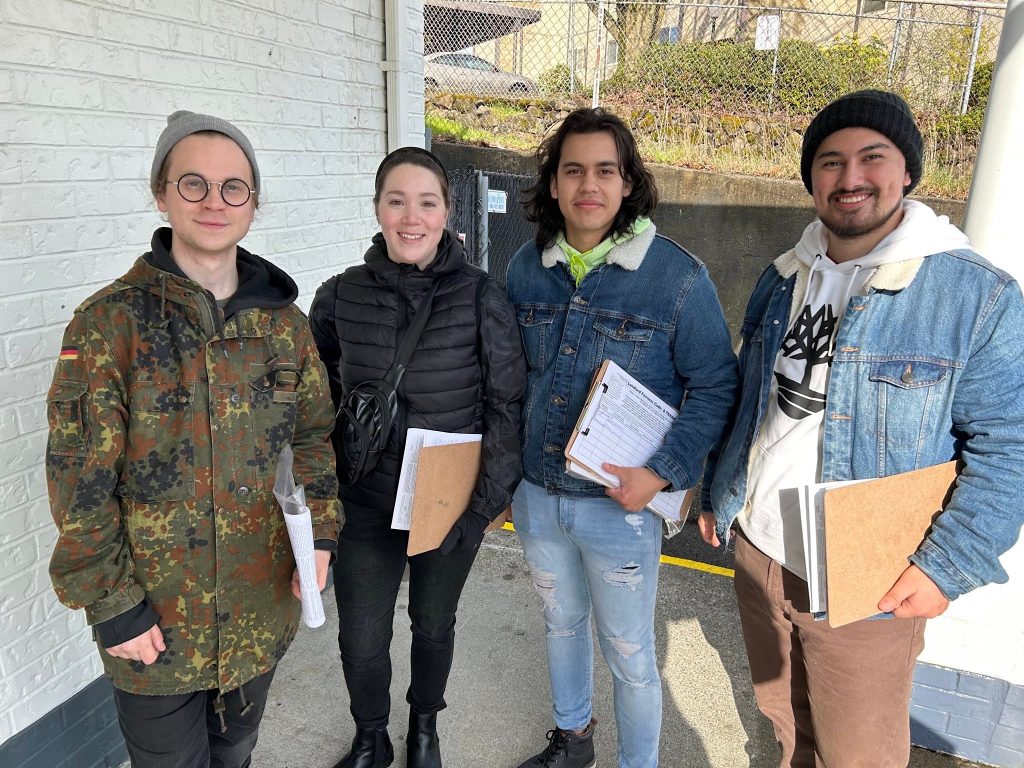
RealPage is facing a federal lawsuit alleging its price-fixing algorithm illegally set thousands of rents.
The US Department of Justice (DOJ) has brought an antitrust lawsuit against RealPage, a property management company that collects rental pricing data and uses it to make recommendations to landlords.
YieldStar, one of RealPage’s programs, works by collecting pricing data from individual customers, much of which is sensitive or confidential. This data is then pooled, and rental prices are calculated and suggested through an algorithm. A ProPublica investigation in October 2022 revealed the possible connections between RealPage software and increasingly high rental prices across the United States. In some areas, RealPage is used for setting the prices of over 90% of properties. The DOJ along with eight states, including Washington, brought a lawsuit in response, alleging that RealPage had violated antitrust laws by creating and maintaining a monopoly in the housing market.
It was also clear, according to a consultant associated with RealPage, that landlords and property managers were hesitant to raise prices when they had a personal connection with tenants. “There’s way too much empathy going on here,” said the consultant, encouraging the use of YieldStar to make price increases in a detached way.
Ty Moore, a labor and community organizer active with Tacoma & Pierce County Democratic Socialists of America, sees the empathy gap as a real obstacle to housing solutions.
“As they even mention in some of RealPage’s documents, [part of their goal was] erasing any element of empathy,” Moore said. “We see the results all around us, and growing homeless encampments. [Their brazenness] is just a window into the cultural dynamics of rising inequality […] and the mentality [the uber-wealthy] have when they don’t feel public scrutiny. There’s all sorts of examples of living in a totally separate world from the people that are impacted by their industry decisions.”

Kate Rubin, who is organizing director at Be:Seattle, a nonprofit focused on protecting and empowering tenants, agreed. “It was part of their messaging to begin with, to take out the empathy part, where you might feel something for your tenants who are struggling to keep a roof over their heads and feed their children and live comfortably,” she said.
One client of RealPage, as reported by the DOJ, even stated directly: “I always liked this product because your algorithm uses proprietary data from other subscribers to suggest rents and term. That’s classic price fixing.”
Edmund Witter, Senior Managing Attorney for the Housing Justice Project at the King County Bar Association says “That’s an admission right there. The extent that they were ultimately talking about how this should be used, and that it allows you to group and crowdsource this information, is just another way to say ‘Let’s build a trust that’s illegal under federal law’.”
The brazenness of RealPage’s leadership and their customers is especially shocking, when one considers the measurable impact on the rental market.

These price-setting practices were found by ProPublica to be highly associated with rising rents and housing unaffordability. In Seattle in particular, some apartments had price increases of 33% in only one year, with others increasing in price by 42% since 2012, outpacing averages for similar properties significantly. ProPublica had also found that in Seattle, “70% of apartments were overseen by just 10 property managers, every single one of which used pricing software sold by RealPage.”
ProPublica found that when apartment rent prices are set using algorithms like YieldStar, prices rise (in line with what RealPage promises) at rates that become unaffordable for renters. In Seattle, over 46,000 households pay more than half their income on rent.
“Our broad analysis of the nature of the housing affordability crisis is certainly that companies like RealPage seem to be a serious factor in the rapid rise of housing prices,” Moore said.
The question of whether this antitrust lawsuit will have a larger impact on housing regulation is unclear.
“I think certainly if the courts rule against RealPage and against the property management companies that are using RealPage, there’ll be the material impact of breaking up the collusion,” Moore said. “But I think the bigger impact may be political. It shines a real spotlight on the profit-driven dynamics of the rental housing market.”

In response to the RealPage investigation, Rep. Becca Balint (VT-AL) and Rep. Jesús “Chuy” García (IL-04) introduced the Preventing Algorithmic Facilitation of Rental Housing Cartels Act earlier this year. Kamala Harris has also supported the passing of this act.
Assistant Attorney General Jonathan Kanter explained that the YieldStar algorithm shows the way in which software tools can speed up and obscure illegal activities. He said in a speech last month that “the modern machinery of algorithms and AI can be even more effective than the smoke-filled rooms of the past.”
However, critiques of the proposed legislation have highlighted a number of potential loopholes, and while the algorithmic nature of the YieldStar program is at the center of the antitrust case, many housing experts do not believe that it is the main issue at hand.
“In some ways, [the use of RealPage] is just a symptom of the far deeper process of global finance capital increasingly dominating both the rental and the private home market,” Moore said. “There’s a broad process of monopolization going on there.”
Rubin agreed, saying that “it’s just capitalism working, exactly as capitalism is intended.”
“I don’t foresee a big change because there’s only a few major housing providers, major developers, who are building, at least here in [Seattle],” Rubin continued. “And whether or not they’re actively colluding, they’re definitely still looking to each other to set those prices.”
The bold attitude of RealPage’s leadership, and the potential impact of the RealPage case in the larger context of housing affordability, reveals a broader issue at the core. Rubin says that the detachment in RealPage’s actions is emblematic of the relationship between landlords and tenants.
“I think that that is like the overall attitude of today’s age of capitalism — where you take advantage of people wherever you can to get ahead,” Rubin said. “There are some people who are so wealthy that they don’t even really consider the human aspect of their behaviors.”
Connections between landlords and tenants can be in many cases weak.
“In Tacoma, we know that a majority of landlords don’t even live in the city of Tacoma,” Moore said. “Now with RealPage and with these different algorithms setting rent prices, even that already very tenuous connection between individual property managers and tenants appears to be breaking.”
It may also not be simply a matter of distance or the use of algorithms, but rather a fundamental attitude that pervades landlord-tenant relationships.
“What’s fascinating to me about landlords is that there’s no other industry that can so openly talk about their customers with contempt, in the way that I think landlords do,” Witter said.
“The universal sense amongst the tenants [I have spoken to] is ‘The landlords don’t know us, they don’t care. All they care about is profits’, and I think the tenants are absolutely right about that,” Moore said.
The regulation that appears to be needed goes way beyond the RealPage case, and Witter believes that fundamental changes need to occur in the housing market as a whole, as well as the way in which housing is regulated. The question of what can be done to improve the situation for tenants in Seattle as well as across the United States, goes beyond the RealPage case.
“Price fixing is a big problem. This [YieldStar] model is a big problem, but there’s a cultural problem here, a bigger underlying housing affordability problem, and you can get rid of this cartel but that’s not going to change the fact that rents are still arbitrarily set, that they’re still extremely high. People are being exploited for a basic need on a routine basis. The power dynamics are just too overwhelming,” Witter said. “You need way greater regulation than what’s actually ever going to happen through merely suing RealPage or any company that tries to do the same thing.”
Rubin agreed, though did point to some marginal benefits in reining in algorithmic price fixing.
“I think if RealPage goes it won’t make a huge difference. I expect that landlords will be less likely to raise the rents on existing tenants higher than the rents for the open apartments,” Rubin said. “That’s the biggest difference that I expect to see.”
Tenant advocates agreed that systemic changes are needed, and that the RealPage case is a symptom of a larger problem. They argue that the shifts that need to occur are well known, and go beyond antitrust law: rent stabilization, social housing, taxing the wealthy, and simply building more affordable housing are all part of the solution. However, the status quo works very well for many people in power, which creates political obstacles.
“As we’ve seen with RealPage’s growing monopolization trends which create really perverse incentives, the housing shortage is a critical ingredient in creating super profits that many different actors in the housing industry are getting,” Moore said. “They don’t have an incentive to solve the housing shortage.”
A major aspect of shifting this systemic structure is rectifying the power and knowledge imbalance between landlords and tenants. “We’re on a fundamentally uneven playing field,” Moore said, adding that tenant organizing is a vital part of the picture to push back against both companies like RealPage, as well as broader power relationships. Witter agreed, saying that “there’s such a take it or leave it attitude in housing right now, and it seems like the issue across the world is that there’s no negotiating power.”
The Washington Landlord Association has yet to respond to a request for comment.
RealPage has denied the complaints against it, and has also proposed to adjust its software to become compliant with DOJ requests. The lawsuit itself is likely to be a lengthy one. In addition, the proposed legislation focused on algorithmic price fixing still needs to pass all stages of the legislative process. While the potential impact of the RealPage case may take time to discover, housing advocates continue to push for change.
Leah Hudson is an editor and writer published by Insider, Atlas Obscura, and Penguin Random House New Zealand. Leah loves to write about sustainable urban development, mental health, and matters of the heart. She spends her time reading, walking her dog, and eating unreasonable amounts of chocolate. You can find her at https://leahhudsonleva.com/.

